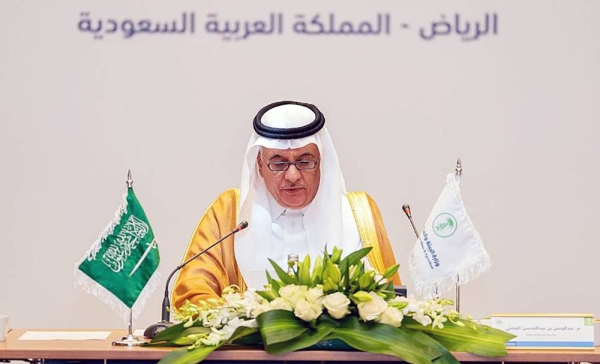
Water scarcity in the Middle East and North Africa (MENA) region can either be a destabilizing factor or a motive that binds communities together, according to a new joint report from the United Nation’s Food and Agriculture Organization (FAO) and the World Bank.
The report “Water Management in Fragile Systems: Building Resilience to Shocks and Protracted Crises in The Middle East and North Africa” warns that instability combined with poor water management can become a vicious cycle that exacerbates social tensions. The report emphasized that the actions needed to break the cycle can also be essential elements for recovery and consolidating stability.
The report was launched on Tuesday during a special session focused on MENA at the World Water Week conference in Stockholm, Sweden. It calls for a shift away from current policies focused on increasing supplies toward long-term management of water resources.
Ineffective policies have left both the region’s people and communities exposed to the impacts of water scarcity, growing ever more severe as a result of rising demand and climate change.
More than 60 percent of the region’s population is concentrated in places affected by high or very high surface water stress, compared to a global average of about 35 percent, it noted.
The report warned that if left unchecked, climate-related water scarcity is expected to cause economic losses estimated at 6 to 14 percent of Gross Domestic Product (GDP) by 2050, the highest in the world.
Speaking at the session, FAO Regional Programme Coordinator for the Near East and North Africa, Pasquale Steduto, explained that economic losses mean rising unemployment, compounded by the impact of water scarcity on traditional livelihoods such as agriculture, could result in food insecurity and force people to migrate.
Steduto, who is also co-lead author of the report, stated that the good news is that actions can be taken to prevent water scarcity and instability from becoming a vicious cycle, by focusing on sustainable, efficient and equitable water resources management and service delivery.
A balanced approach will be needed that addresses the short-term impacts of water scarcity while investing in longer-term solutions, including the adoption of new technologies, as the basis for sustainable growth.
In Iraq, FAO launched a project to support resilience to drought by providing cash-for-work to internally displaced people and refugees.
Another example is the World Bank’s financed water-treatment plant in Gaza that aims to reverse years of neglect due to instability with the reliable supply of safe drinking water and the gradual replenishment of the aquifer with treated water.
In Egypt, 10 percent of agricultural water is recycled drainage water, while Morocco plans to install more than 100,000 solar pumps for irrigation by 2020.
World Bank Senior Water Resources Management Specialist and report co-lead author, Anders Jagerskog asserted that water scarcity always has both a local dimension, as it directly impacts communities, and a regional one, as water resources cross borders.
“Addressing water scarcity is an opportunity to empower local communities to develop their own local consensus on strategies for addressing the challenge. At the same time, it is a motivation for strengthening regional cooperation in the face of a common problem,” noted Jagerskog.
More than half of all surface water in the region are transboundary, and all the countries share at least one aquifer.
The long history of shared water management in the region demonstrates how water offers an opportunity to bring people together to solve complex challenges related to the allocation and delivery of water.
Consultations at the local level coupled with the restoration of water services can help rebuild the bond of trust between citizens and the government. Regional partnerships to manage shared resources is a step toward greater regional integration.
The report emphasizes that while the policies are critical for effective water management, they are also vital contributions to long-term stability.









